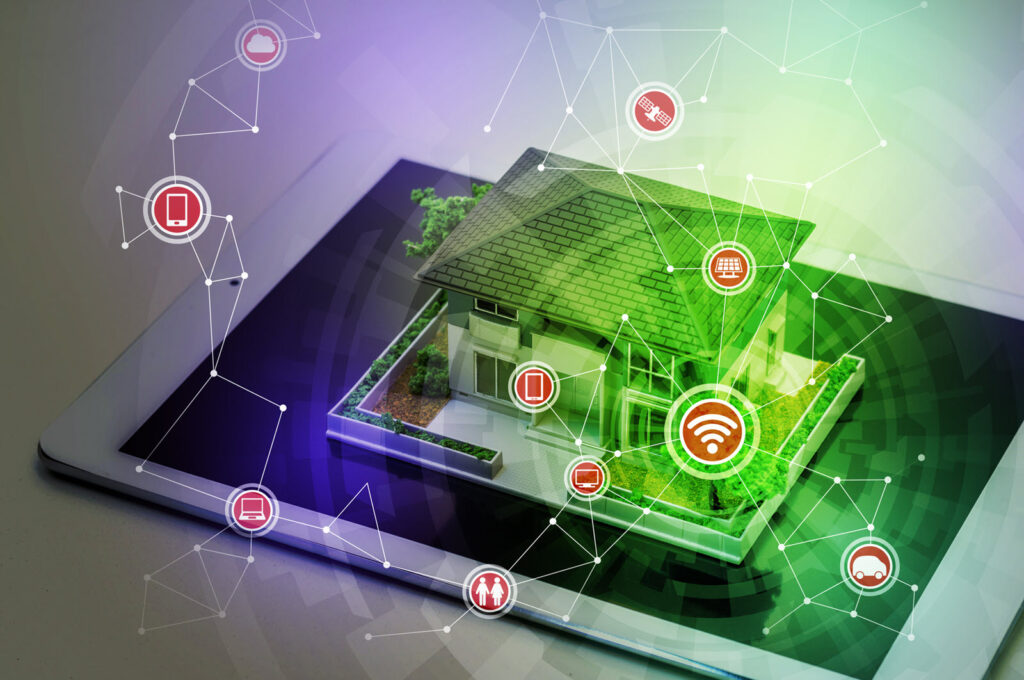Legal Considerations in Smart Home Insurance
Legal Considerations in Smart Home Insurance
Navigating legal considerations in smart home insurance means understanding liabilities, data privacy laws, and contract clauses specific to smart technology. In today’s connected era, homeowners invest heavily in smart devices to enhance convenience, security, and energy efficiency. But alongside these benefits, legal considerations in smart home insurance are crucial. With legal considerations in smart home insurance, you can ensure coverage aligns with evolving tech risks and complies with regulations.

Why Smart Homes Change the Insurance Landscape
Smart home devices fundamentally alter traditional insurance models. Considering legal considerations in smart home insurance, insurers must evaluate new exposures—like device malfunction or cyberattacks. This means insurers reassess risk based on operating systems, IoT vulnerabilities, and data handling practices to meet legal considerations in smart home insurance. For homeowners, addressing legal considerations in smart home insurance ensures your coverage captures these emerging threats.
Understanding Liability Risks
Device Malfunction
When a smart home device malfunctions—say, a smart thermostat causing fire or a smart door lock failing—liability becomes complex. Insurers now weigh legal considerations in smart home insurance to determine if device failure is covered under standard policies. Homeowners must review legal considerations in smart home insurance and identify clauses related to technology-caused damage. Understanding legal considerations in smart home insurance could mean the difference between full coverage or denials.
Cybersecurity Breach
Smart home systems often collect personal data. If breached, you may face liability for data exposure. Therefore, legal considerations in smart home insurance require that homeowners ensure their insurer covers cyber risks. Modern policies incorporate legal considerations in smart home insurance by including cyber liability endorsements. Failing to address legal considerations in smart home insurance may result in limited or no protection.

Regulatory Framework and Compliance
Smart home insurance intersects with various laws—privacy, data protection, product safety. The main laws driving legal considerations in smart home insurance include GDPR (in the EU) and local data laws. Under legal considerations in smart home insurance, insurers must verify homeowners’ devices comply with safety standards. Consumers likewise must be aware of legal considerations in smart home insurance to ensure a policy doesn’t void if a device lacks certification.
Contract Clauses You Must Know
Exclusions for Technology-Related Damage
Standard homeowners policies may exclude damage from software bugs or connectivity failures. As part of legal considerations in smart home insurance, review policy exclusions. Ensure the contract addresses legal considerations in smart home insurance by adding tech-specific endorsements. Failing to do so risks denial of claims under legal considerations in smart home insurance.
Data-Use and Privacy Provisions
When insurers request device data to support claims, legal considerations in smart home insurance must include consent and privacy clauses. Check that policies follow legal considerations in smart home insurance, detailing data retention, permissible use, and deletion. Proper legal considerations in smart home insurance ensure you’re legally protected if personal data is shared.

Analytics and Premium Adjustments
Smart homes transmit constant data. Insurers may use legal considerations in smart home insurance to adjust premiums based on device data. Policies must clearly state how legal considerations in smart home insurance allow data usage for rating modifications. Be vigilant: ensure legal considerations in smart home insurance guarantee transparency, opt-out rights, and no discrimination based on benign data anomalies.
Cross-Jurisdictional Complications
Smart devices don’t respect borders. Homeowners traveling with smart home hubs could encounter legal considerations in smart home insurance in different jurisdictions. Ensure policy language covers legal considerations in smart home insurance internationally. In the event of claims abroad, legal considerations in smart home insurance guide whether local laws apply or the base jurisdiction governs.
Claims Process in Smart Home Context
When filing a claim due to device‑related incidents, legal considerations in smart home insurance influence documentation and timing. Insurance adjusters may demand logs from your smart system, raising legal considerations in smart home insurance about admissible evidence. Ensure your policy outlines legal considerations in smart home insurance around data preservation, chain‑of‑custody, and insurer access rights.
Best Practices to Address Legal Considerations
Conduct a Policy Audit
Regularly review coverage for legal considerations in smart home insurance. Confirm technology endorsements, exclusions, and data policies. Documenting your audit shows insurers you’re aware of legal considerations in smart home insurance and actively managing them.
Seek Legal Counsel
Consult with a lawyer experienced in technology insurance to interpret legal considerations in smart home insurance. A professional can tailor your policy to emerging device risks, ensuring legal safeguards are in place.
Maintain Security Hygiene
Strong passwords, encryption, firmware updates, and vendor‑approved devices reduce risk. This aligns with legal considerations in smart home insurance requiring homeowners to mitigate hazards. By following smart home best practices, you fulfill legal considerations in smart home insurance and strengthen your ability to claim coverage.

Emerging Trends in Smart Home Insurance Law
Unified Tech Safety Standards
Stakeholders are pushing for recognized safety standards, affecting legal considerations in smart home insurance. These standards will influence policy design and liability apportionment under legal considerations in smart home insurance. As standards evolve, insurers and homeowners must adapt to maintain compliant legal considerations in smart home insurance frameworks.
AI in Claims Adjustment
Some insurers use AI to process smart home data. This introduces new legal considerations in smart home insurance, like algorithmic transparency and bias. Policies need clauses acknowledging legal considerations in smart home insurance around AI‑based decisions, and offer dispute mechanisms. Keeping up with these legal considerations in smart home insurance ensures fairness and legal compliance.
Government Oversight Expansion
Regulators are increasingly scrutinizing IoT. Upcoming laws will emphasize legal considerations in smart home insurance like mandatory disclosure, breach notification, and liability caps. Staying ahead of these legal considerations in smart home insurance helps homeowners and insurers align with evolving policy landscapes.

Real‑World Case Studies
Smart Smoke Detector Failure
In a notable case, a malfunctioning smart smoke detector failed to alert firefighters, resulting in property loss. The ensuing litigation centered on legal considerations in smart home insurance: was the manufacturer liable, or did homeowner’s policy cover the damage? The court highlighted legal considerations in smart home insurance, noting the exclusion clause for “device failure”, prompting insurers to adjust their policy language around legal considerations in smart home insurance.
Data Disclosure Dispute
Another example involved an insurer demanding continuous smart‑camera feeds to verify occupancy before approving claims. The homeowner refused, citing privacy. This dispute shed light on legal considerations in smart home insurance, focusing on data consent and admissibility. Insurers now commonly include transparent legal considerations in smart home insurance clauses for device data use.

Checklist for Homeowners & Agents
| Item | Description |
|---|---|
| Understand exclusions | Review your policy for technology‑specific exclusions; align with legal considerations in smart home insurance. |
| Add endorsements | Request cyber‑liability and device‑failure coverage to satisfy legal considerations in smart home insurance. |
| Agree on data terms | Confirm what data insurers can access, under legal considerations in smart home insurance. |
| Secure your system | Use best practices to comply with legal considerations in smart home insurance. |
| Monitor regulation | Stay updated on laws shaping legal considerations in smart home insurance. |
Conclusion
Smart homes offer convenience—but expose homeowners to new liabilities. Integrating legal considerations in smart home insurance into every decision—from buying devices to filing claims—is essential. By understanding liability risks, regulatory frameworks, contract clauses, data issues, and emerging trends, you build a robust insurance foundation. Proactive steps like policy audits, expert legal advice, and security hygiene further reinforce your protection. In the fast‑evolving IoT landscape, paying attention to legal considerations smart home insurance ensures you stay covered, compliant, and future‑ready.

